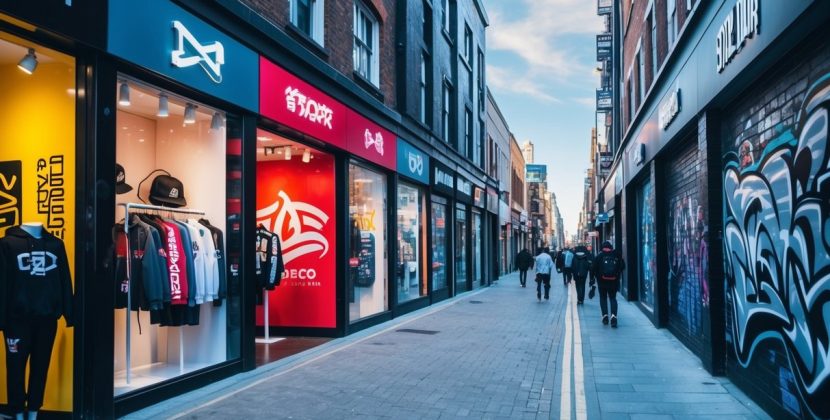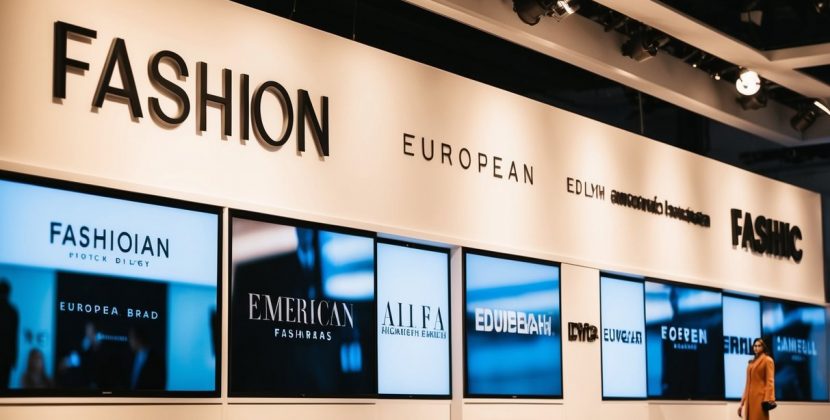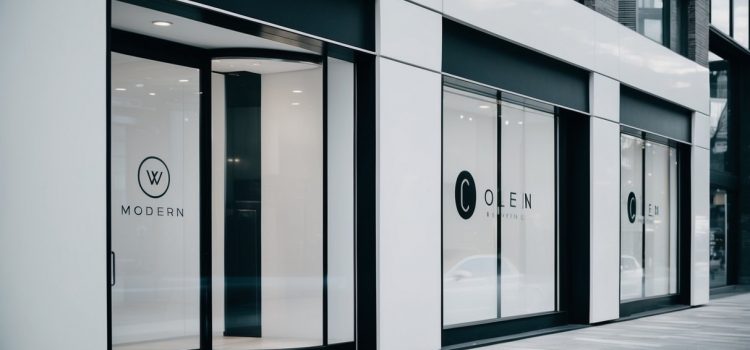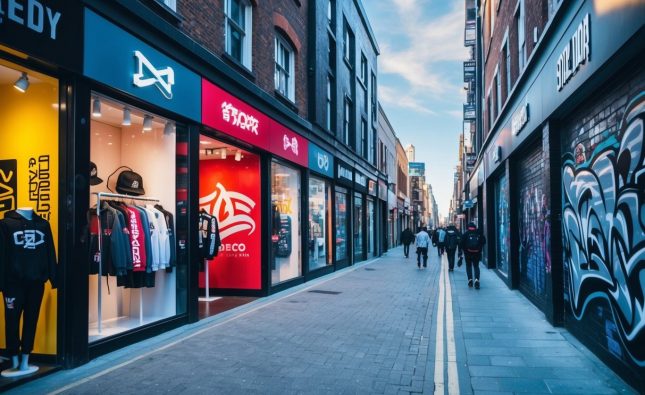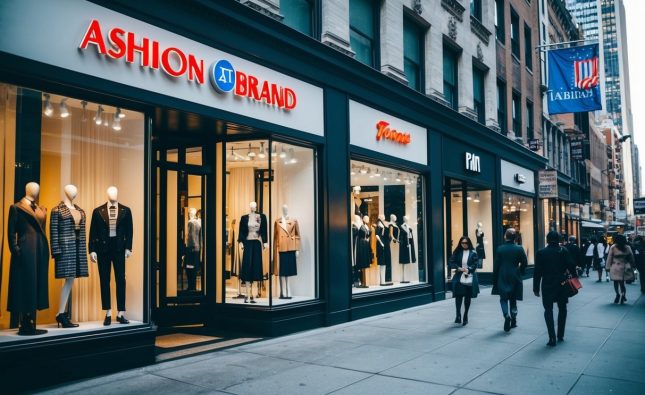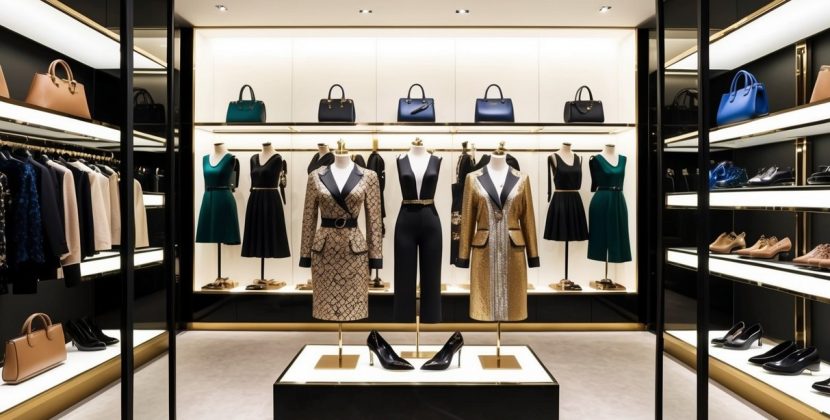
Minimalist fashion emphasizes simplicity, functionality, and timeless style. It often features a curated wardrobe that embraces a neutral color palette and classic silhouettes. Some of the top brands known for their minimalist approach include Everlane, COS, and Uniqlo, which focus on quality over quantity and promote sustainable practices.

These brands cater to individuals seeking versatile pieces that can be mixed and matched effortlessly. They provide a solution for those who want to simplify their lives by narrowing down their clothing choices while still looking stylish. Each brand brings its unique perspective to minimalism, making it easier for anyone to find their perfect fit.
In a world often filled with fast fashion, these brands stand out by prioritizing lasting designs and ethical production. This shift not only meets consumer demand for sustainability but also encourages a more thoughtful approach to dressing.
Defining Minimalist Fashion

Minimalist fashion emphasizes simplicity, function, and a curated aesthetic. It reflects a lifestyle choice where quality surpasses quantity and personal expression comes through an intentionally limited wardrobe.
Principles of Minimalist Design
The principles of minimalist design center on clean lines, neutral colors, and a focus on versatility. Clothing items are often characterized by their timeless appeal, aiming for functionality without extravagant embellishments.
Essential aspects include:
- Quality over Quantity: Prioritizing well-made pieces that withstand trends.
- Functional Aesthetics: Every item serves a purpose while remaining stylish.
- Neutral Color Palette: Shades like black, white, gray, and earth tones dominate, allowing for easy mixing and matching.
Minimalist fashion encourages individuals to invest in fewer items that serve multiple roles in their wardrobe.
History and Evolution
Minimalist fashion emerged prominently in the late 20th century, influenced by architectural minimalism and the desire for simplicity in a complex world. Designers like Yohji Yamamoto and Isabel Marant popularized the movement by creating collections that paired simplicity with innovative fabrics.
In the 1990s, brands such as Calvin Klein championed minimalist aesthetics, emphasizing the beauty of understated elegance.
Minimalism has continually evolved, reflecting societal shifts toward sustainability and ethical consumption. Today, it resonates with those seeking a conscious lifestyle, aiming to express individuality through thoughtfully selected attire rather than excess.
Essential Attributes of Top Minimalist Brands
Top minimalist brands emphasize specific qualities that differentiate them in the fashion industry. This includes a commitment to quality, sustainability, and a distinct aesthetic that prioritizes versatility. Each attribute plays a crucial role in defining a brand’s identity and appeal.
Quality and Craftsmanship
Quality is a cornerstone of minimalist fashion. Top brands prioritize the use of premium materials that ensure durability and comfort. They focus on timeless designs, which require meticulous craftsmanship.
-
Material Selection: High-quality fabrics like cotton, linen, and wool are common. These materials contribute to a luxurious feel and long-lasting wear.
-
Attention to Detail: Precision in stitching and finishing sets these brands apart. Such details enhance the garment’s aesthetic appeal and functionality.
Many minimalist brands also adopt small-batch production methods. This approach not only elevates quality but also ensures that each piece receives the attention it deserves.
Sustainability and Ethics
Sustainability is increasingly important in minimalist fashion. Leading brands implement eco-friendly practices throughout their supply chains to minimize environmental impact.
-
Sustainable Materials: Organic or recycled fabrics are frequently used. This helps reduce reliance on harmful chemicals and promotes resource conservation.
-
Ethical Labor Practices: Many top brands ensure fair wages and safe working conditions for their workers. This commitment to ethics builds trust with consumers who prioritize responsible consumption.
These efforts resonate with customers who value transparency and corporate responsibility. By promoting sustainability, minimalist brands align themselves with a more conscious consumer base.
Aesthetic and Versatility
Aesthetic simplicity is a defining characteristic of minimalist brands. They often focus on a neutral color palette, straight lines, and functional designs.
-
Timeless Styles: Classic silhouettes ensure that pieces remain fashionable over time. This approach allows consumers to invest in clothing that transcends seasonal trends.
-
Mix and Match: Versatility is key; many garments can be styled in various ways. This flexibility encourages minimalists to build cohesive wardrobes.
The combination of aesthetic appeal and practicality positions these brands as favorites among those who appreciate a sleek, uncomplicated fashion statement.
Leading Brands in Minimalist Fashion
Several brands stand out in the realm of minimalist fashion, focusing on clean lines, functional design, and quality materials. This section highlights key players recognized for their commitment to minimalist aesthetics and sustainable practices.
Everlane
Everlane emphasizes transparency and ethical production. The brand is known for its high-quality basics that embody simplicity and functionality.
- Key Offerings: T-shirts, jeans, and outerwear feature timeless designs.
- Materials: Emphasis on sustainable fabrics, such as organic cotton and recycled materials.
- Pricing: Transparent pricing model that discloses costs associated with production.
Their commitment to “Radical Transparency” ensures customers know the true cost behind every piece, building trust and loyalty.
COS
COS, part of the H&M Group, caters to those seeking contemporary minimalist pieces. The brand focuses on timeless styles that transcend seasons.
- Design Philosophy: Emphasizes architectural shapes and understated elegance.
- Product Range: Offers apparel for men, women, and children along with accessories.
- Sustainability: Uses organic and recycled materials, promoting a more sustainable approach to fashion.
COS’s collections often feature neutral palettes and luxurious fabrics, appealing to those who appreciate refined simplicity.
Cuyana
Cuyana stands out for its philosophy of “fewer, better things.” The brand promotes minimalist fashion through carefully curated collections.
- Core Values: Advocates for sustainable sourcing and quality craftsmanship.
- Signature Products: Known for leather goods, clothing, and accessories that emphasize timeless design.
- Ethical Production: Partners with artisans worldwide, ensuring fair wages and sustainable practices.
Cuyana often includes limited-edition items, encouraging mindful consumption and longevity in wardrobes.
APC
APC, or Atelier de Production et de Création, is renowned for its Parisian chic and minimalist aesthetic. The brand specializes in high-quality denim and wardrobe essentials.
- Key Features: Focuses on simple cuts and refined details, representing understated luxury.
- Product Line: Includes jeans, knitwear, and tailored pieces for men and women.
- Quality and Craftsmanship: Strong emphasis on durability and timeless style, with expertly crafted garments.
APC’s commitment to minimalist design is evident in its classic pieces that seamlessly fit into any wardrobe, making it a favorite among minimalist fashion enthusiasts.
Curating a Minimalist Wardrobe
Building a minimalist wardrobe focuses on choosing essential pieces that can be mixed and matched. The goal is to create a cohesive and functional collection that reflects personal style while prioritizing quality over quantity.
Key Pieces
Essential items define a minimalist wardrobe. These pieces should be versatile and timeless.
Core Clothing Items:
- Basic Tees: Neutral colors such as white, black, and gray.
- Tailored Trousers: Comfortable yet chic trousers in a neutral tone.
- Little Black Dress: A classic that can transition from day to night.
- Denim: A well-fitted pair of jeans offers flexibility in styling.
Layering Essentials:
- Cardigans: Lightweight options for added warmth.
- Structured Blazers: Perfect for elevating casual outfits.
Focusing on quality ensures longevity. Selecting items made from durable materials will also reduce the frequency of replacements.
Maintenance and Care
Proper care prolongs the life of minimalist wardrobe pieces. Adopting a few simple habits can make a significant difference.
Washing Instructions:
- Always read garment tags for specific care instructions.
- Opt for cold water washes to protect fabric integrity.
Storage Solutions:
- Use wooden hangers to maintain shape.
- Fold knitwear to avoid stretching.
Regularly inspect items for wear. Prompt repairs will extend the usefulness of beloved pieces.
Incorporating these practices enhances the minimalist ethos, ensuring that each item serves its purpose effectively while remaining in great condition.

